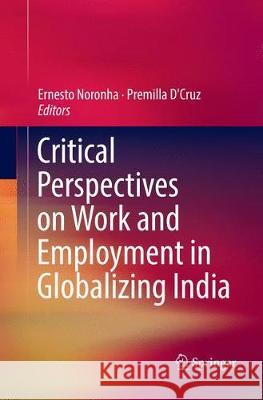Critical Perspectives on Work and Employment in Globalizing India » książka
topmenu
Critical Perspectives on Work and Employment in Globalizing India
ISBN-13: 9789811098864 / Angielski / Miękka / 2018 / 303 str.
Kategorie:
Kategorie BISAC:
Wydawca:
Springer
Język:
Angielski
ISBN-13:
9789811098864
Rok wydania:
2018
Wydanie:
Softcover Repri
Ilość stron:
303
Waga:
0.45 kg
Wymiary:
23.39 x 15.6 x 1.75
Oprawa:
Miękka
Wolumenów:
01
Dodatkowe informacje:
Wydanie ilustrowane











